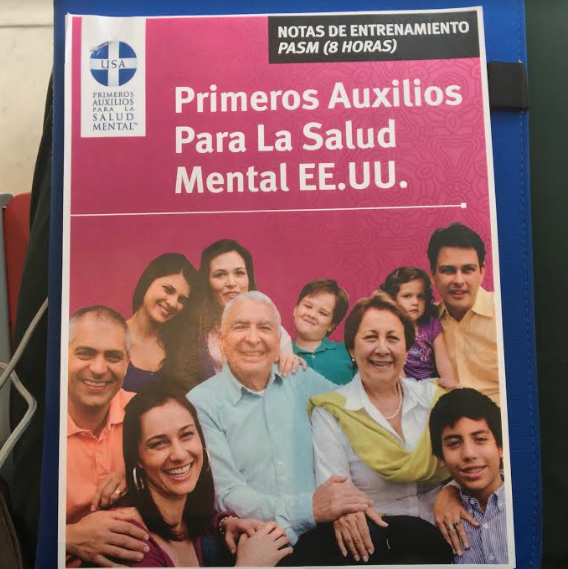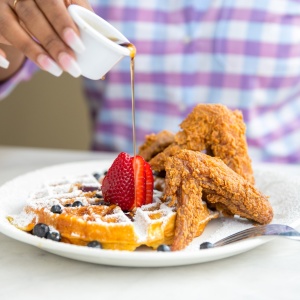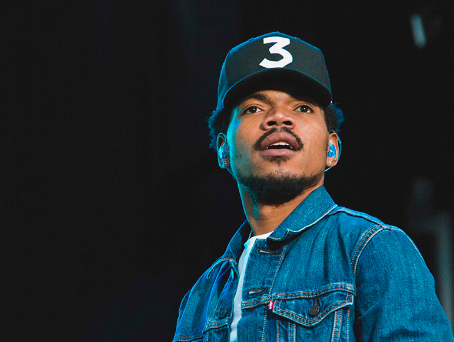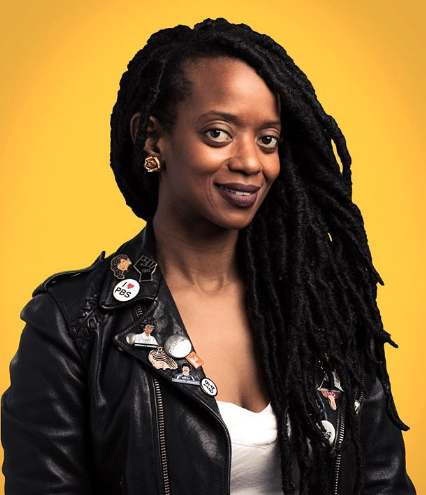Hip-hop mogul Chris Lighty (NPR)
Greetings, Earthling. Welcome to another round of Mental Health Monday, your weekly dose of stories, resources, and motivation for your everyday life. We made it here to another week in the Age of Alternative Facts. Clap it up for you. To make sure you stick around to help make this world less sucky, we've got some magic here for you.
On the last roundup, we shared some goodness about how the church failed a mother with mental health challenges, a guy who walked across the country to help with his depression, and a beginner's guide to therapy by Buzzfeed's Heben Nigatu. Have a gander.
THIS WEEK'S GOODNESS:
"Hip-Hop, Mental Health and Telling Our Stories: Combat Jack Talks the Life and Death of Chris Lighty" by Shanita Hubbard [The Root]
Mogul is fair and authentic. It unpacks some uncomfortable truths. It dives into mental-health issues that are specific to black and brown people, and the pressures of fame; and it takes the listener on a journey of what it feels like to truly see our heroes as their complex, beautiful, flawed and powerful selves.
Nikki Lynette shared some tips about handling depression, anxiety, and the like when stuff gets really real.
"Breaking the mental health taboo: 'Please talk about it'" by Phillippa Goodrich [BBC]
After his collapse, which he says followed weeks of not sleeping and drinking too much, Brian was admitted to a clinic for two months. There it became clear that he had suffered from depression since his teens.
Brian says the culture and environment in which he was working at the time wasn't conducive to helping him to recognise his illness, but he thinks the failure to acknowledge it goes deeper than that.
"Society, the world in which I was operating, the country in which I was operating - it was taboo."
"Encouragement from others to live well again" by Jennet [Make the Connection]
Jennet's father died while she was in Iraq, which made transitioning back even more challenging. She returned to her unit, and her chain of command saw a difference in her. With their encouragement, she began counseling and later found support at VA. Treatment helped Jennet overcome depression and begin living well again.
"Rocked by suicides, Palo Alto high schools want to make mental health care as normal as eating breakfast" by Grace Hwang Lynch [PRI]
In this Silicon Valley town that has experienced too many teen suicides, the schools are trying to make mental health services as normal as eating breakfast or taking medicine for a physical ailment. At the wellness centers, students can visit a nurse, see a counselor, or just relax with a granola bar or cup of tea.
“I actually come in here quite often, whether it’s to meet with Julia or to catch up with friends or counselors. The snacks are a big part of it, and it’s just a really nice place during brunch or lunch to unwind,” says Palo Alto High junior Maddie Lee.
"Barbershops as confessionals, newsrooms and therapists" [The Economist]
Keith Dube, a radio presenter, has argued that there is a “mental health crisis ongoing in black, British communities” (it formed the subject of his documentary “Being Black, Going Crazy?”). Mr Dube struggled with depression but found it difficult to talk about because “black people don’t really do mental illness”. When he started looking into it he found that black men were 17 times more likely than their white counterparts to be diagnosed with a serious mental health issue and that young black men were six times more likely to be sectioned. A distrust of the authorities, as well as a fear of the reaction of peers and parents, leads many to the barbershop chair as the safest space to talk.
YouthBuild Philly recently held a conference on men's mental health and here's a clip of it:
"Giving Voice to the Feelings of Black Boys" by Amber A. Hewitt Ph.D. [Psychology Today]
In the case of Black boys, the intersection of their race and gender may serve as an additional barrier for emotional expression. Majors and Bilson (1992) theorize that one way Black boys and men cope with experiences of oppression is by adopting an exaggerated form of masculinity, or cool pose. Cool pose is often manifested by a tough posture, or mannerisms, to show others that you are in control, despite daily slights of injustice.






























